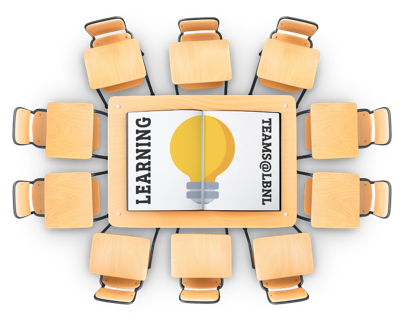
Are you interested in helping improve safety in an informal and collaborative way? Learning Teams may be just for you. Led by James Newman, the Lab’s Human and Organizational Performance Manager, Learning Teams focus on specific safety topics and actively involve small, cross-functional groups in identifying safety improvements. Participation on a Learning Team is entirely voluntary and involves a limited time commitment of two 1-hour meetings. Upcoming topics in April include Open Flames in Labs and Using Sharps in Labs – click here to sign up.
The following is a Q and A that answers the basics about Learning Teams:
Q: What are Learning Teams?
A: Learning Teams are small groups of employees and subject matter experts who come together to analyze typical work conditions to understand how things typically go right, safety-wise. The goal is to empower workers to develop solutions and improve work processes in an informal way, focusing on everyday work to identify strengths and discover opportunities for improvement.
Q. What are the key principles that guide a Learning Team approach?
A. Several key principles underpin the Learning Team philosophy. First, it’s understood that people make mistakes; errors are not intentional and often result from the environment or system. Recognizing that context drives behavior and learning and improving are ongoing processes is vital. Therefore, the focus is on understanding the work environment and improving conditions.
Q. What’s the difference between a Learning Team and a formal investigation/causal analysis?
Learning Teams are different from formal fact-finding investigations. Traditional investigations often focus on finding a cause or explanation, while Learning Teams look for context rather than facts, is informal, and empowers workers to develop solutions. Learning Teams aim to improve work processes by learning from them, while formal investigations often focus on identifying and correcting systemic or human failures.
Learning Teams are informal and collaborative, less structured than a formal investigation, creating a safe space where team members can share their perspectives and experiences openly. They emphasize learning and gaining an understanding of the work from the perspective of those who do it.
Q. Who can participate on a Learning Team?
Learning Teams are designed to include a variety of individuals who bring different perspectives and expertise to the table. Employees who perform the work, SMEs, researchers and engineers, and managers (if appropriate) can all participate on a Learning Team. A trained facilitator guides the discussion, encourages participation, and captures insights. The facilitator’s role is to support everyone in doing their best thinking and ensure the team creates an environment of psychological safety.
The Teams are small, cross-functional, with voluntary participants having direct experience or a relevant connection to the area under review.
Have questions on Learning Teams? Contact James Newman: jdnewman@LBL.gov

